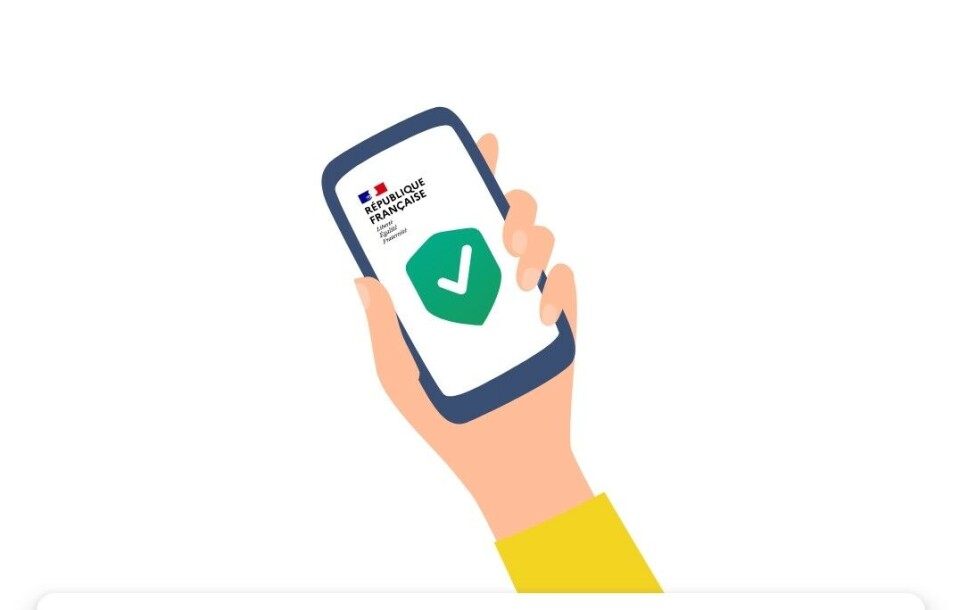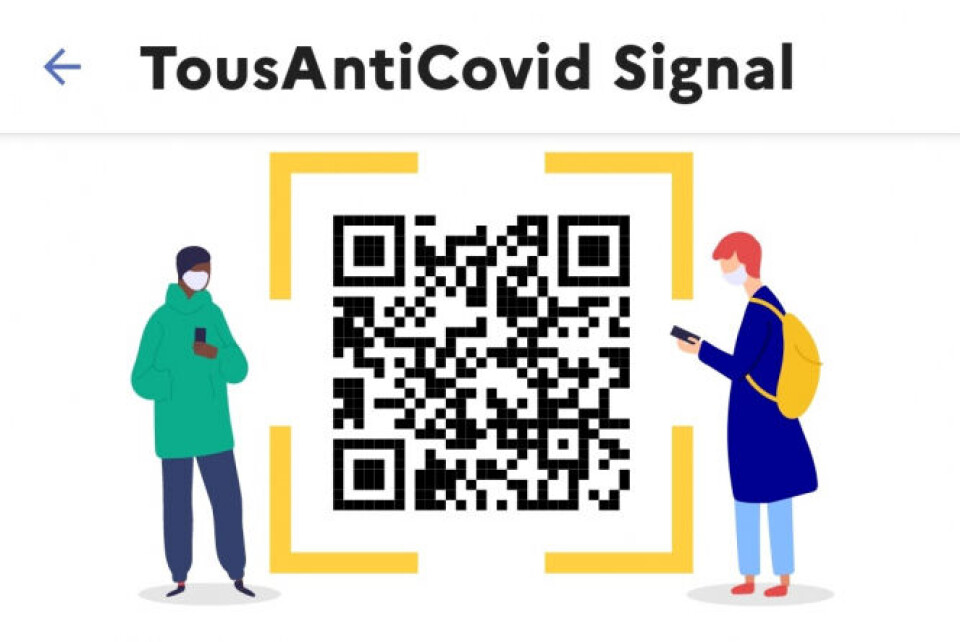-
New Paris-Jersey direct flight to launch this summer
Loganair route forms part of Channel Island’s tourism boost plan
-
Death of right-wing protester in Lyon sparks fears of further political violence
Quentin D, 23, died after reportedly being ambushed by far-left activists near site of political conference
-
Red flood alerts continue in south-west - and more heavy rain expected
Garonne river is particularly affected. French weekly weather forecast February 16 - 20
Digital minister outlines France’s health pass for travel and events
The pass will come into effect on June 9 to allow access to events with over 1,000 people and travel within the EU. There will also be a digital check-in tool for bars, restaurants and gyms to help track Covid-19 cases

The government has revealed details of its proposed Covid-19 health pass that will be used to facilitate travel and the opening of large-scale events in the country from June 9.
France’s junior minister for the Digital Economy Cédric O set out details of the pass and also explained a separate tool that will function as a digital logbook to allow people to check-in to public places by scanning a QR code, and be alerted if a Covid-19 case is detected in that place.
France is set to further ease Covid-19 restrictions on June 9, with the opening of the indoor areas of restaurants, cafés and bars, as well as the reopening of gyms and other sports halls.
Mr O detailed how the certificates and the check-in tool will work in an interview with Le Parisien, published yesterday (May 24).
“I believe that modern tools can be used to simplify and improve the management of a crisis as exceptional as the Covid, especially to alleviate the restrictions on freedom that come with lockdowns and closures,” he said.
The health pass (pass sanitaire)
This pass will serve two purposes. Firstly, it will allow people to enter certain large indoor events in France where more than 1,000 people are in attendance. Secondly, from July 1, it will be used in conjunction with an EU-wide pass to facilitate travel within the Bloc.
The pass will be available in paper form or through France’s Covid-19 track and trace application Tous Anti Covid.
The application already has a function called “carnet” where the passes will be stored in the form of a QR code.
Anyone who has been fully vaccinated against Covid-19, tested negative via a PCR or antigen test within the previous 48 hours, or who has had a positive Covid-19 test between two weeks and six months prior, will be able to get a certificate to store in the “carnet”.
When the person goes to attend an event that requires the pass for entry, they will need to present the pass on the application or on paper to the security personnel. The security person will scan the QR code and it will either show green for accepted or red for rejected.
Not all large events will require a pass for entry. For example, it will not be necessary to have one to enter an outdoor theme park. However, large indoor events grouping over 1,000 people will only be accessible with a pass.
A full list of events that will require the pass will be published by the government in the coming days.
The pass will be available to everyone over the age of 11 in France.
Everyone vaccinated after May 11 will receive a certificate with a QR code on it that can be scanned with the Tous Anti Covid Carnet tool, to store the certificate on the application.
Anyone vaccinated before this date will, from May 29, be able to access their vaccination certificate, with a QR code, through the health insurance website Ameli.
The “carnet” tool will also work in conjunction with an EU pass that will help facilitate travel around the 27 Member States this summer. This system is set to be launched on July 1, with the final approval on how they will work expected to be given at the next meeting of the European Parliament, scheduled for June 7-10.
Read our article about the EU travel certificates here for more information.
The check-in tool

Another tool will, from June 9, be available through the Tous Anti Covid application. This will be called Signal and be used to check-in to certain establishments in order to trace the spread of Covid-19.
The Signal tool is already on the Tous Anti Covid application but is not yet functioning.
Certain establishments - the inside areas of restaurants, cafés, bars, for example - will display a QR code at the entrance. Customers will be asked to either scan the QR code using the Signal tool or to fill out a log book with their contact details and the time that they spend in the establishment.
This practice, in paper format, was in place briefly before France’s second lockdown in October 2020.
The new digital tool will make this easier.
- On entering the establishment, the customer scans the QR code through the Signal tool
- It records the place, date and time of their visit
- The customer can leave whenever they wish without any other obligation. You will automatically be considered to have left after two hours.
- The information of your visit will be stored only on your phone
- If you test positive for Covid-19, you should signal it on the Tous Anti Covid application
- Any user who signals that they are positive will trigger the application to send out a code containing all the dates, places and times of their visit to public establishments to other users. Other users will be notified if they have visited the same place on the same date at the same time (within a two-hour window) of the person who declares themselves positive
- The information will be completely anonymous. It will not store your name, age, address, etc.
- If you spend time in a place where one other customer, who tests positive, has been, you will receive an amber alert suggesting that you get tested for Covid-19, limit contact with other people, and monitor your symptoms
- If you spend time in a place where three or more positive cases have been, you will receive a red alert suggesting you immediately self-isolate and get tested for Covid-19
- All data is erased after two weeks
This check-in tool will not be necessary everywhere. For example, there will be no need to check-in to terraces or cinemas that are well ventilated.
Read more:
Explained: Covid-19 rules for travel to and from France
France considering 'amber' listing for UK due to Indian variant
























